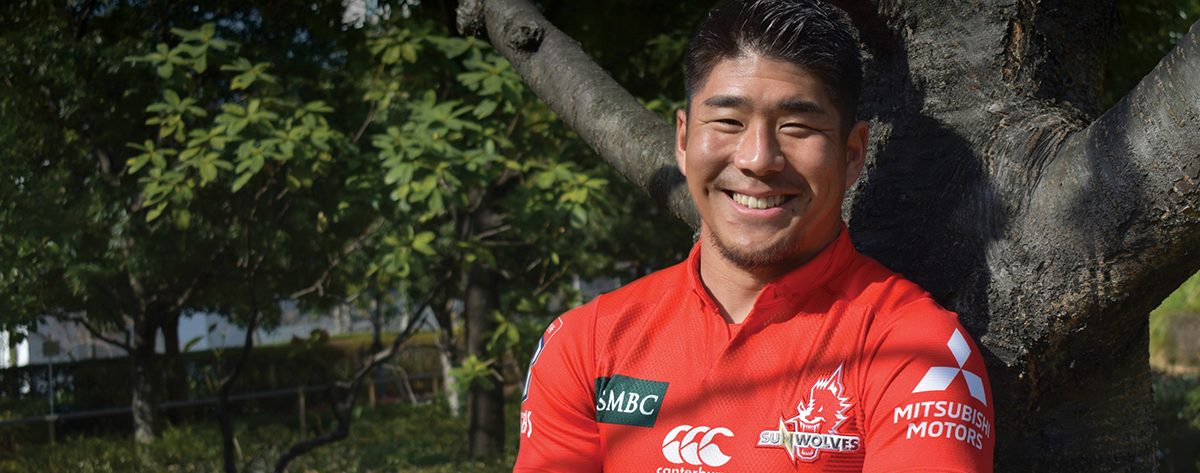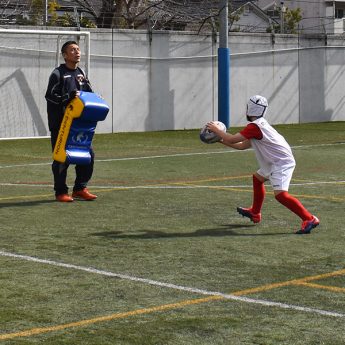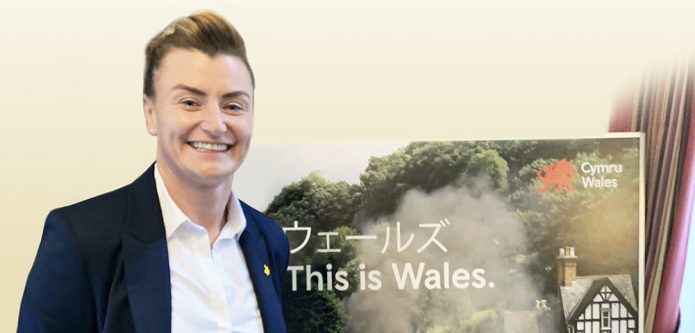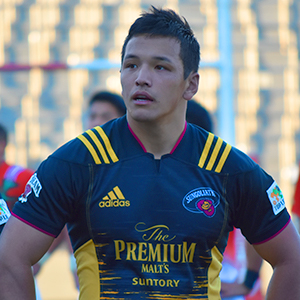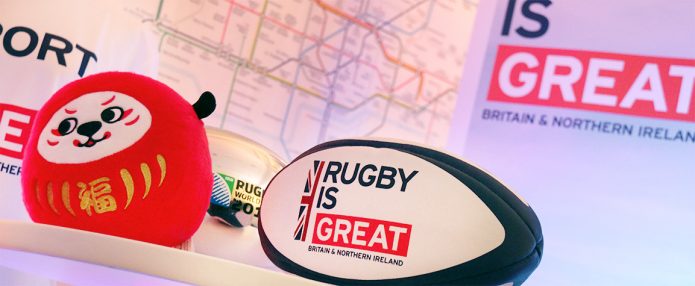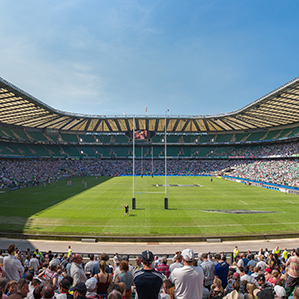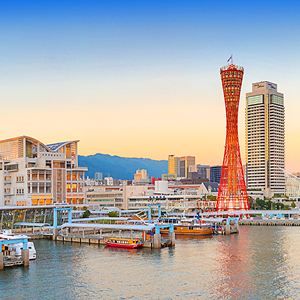Tohoku has played an important role in the development of Rikiya Matsuda, the 24-year-old, 181cm Japanese rugby star. The region, which comprises six prefectures in the northernmost part of the main island of Honshu, was the site of training camps at which the Kyoto native honed his skills. Now known as number 10 for the Brave Blossoms, Japan’s national team, Matsuda played at Fushimi Kogyo high school in Kyoto and Teikyo University in Tokyo—both known for rugby.
In November 2018, Matsuda took part in an official training camp and test match in England. In addition to the Brave Blossoms, he also plays for the Tokyo-based HITO-Communications Sunwolves in Japan’s Super Rugby league and the Top League’s Panasonic Wild Knights in Ota, Gunma Prefecture. As we look to the Rugby World Cup (RWC) 2019, ACUMEN met up with Matsuda on the rugby pitch to learn more about his dreams and indomitable mindset.
What do you like most about rugby?
The sport has changed my life. My father was a professional rugby player, so I naturally joined Minami Kyoto rugby school. Rugby is a great sport. Even if you’re not a fast runner or particularly strong, you can still contribute to the team. It doesn’t matter whether you’re big or small. There is always a suitable position for you, and you can take advantage of your skills.
Rugby gives you lots of chances to meet interesting and loving people, too. As a child, I was a naughty boy who was always playing outdoors with friends. But I still remember the first time I held a rugby ball. I was 6 years old and I loved running, chasing the ball and scoring a try. I was already a little try-getter! I also played football for fun when I was in elementary school, which may be why I’m a good kicker.
What are your goals?
This is my second year as a pro. Playing professionally was a goal that I strived for because I wanted to be an expert of something, to have something I could be proud of. For me, that thing was rugby.
On the pitch, I always try to be a mystery. I know that I’m an all-round player—the kind I have always tried to be. But I want to be a player whom nobody expects, whom people fear. “What is he going to do next?” I always want to surprise people, I don’t want them to know what I might do in a match.
I also try to control my feelings and always look to the future, never the past, because what is done cannot be undone. It’s a way of thinking that is difficult to get used to, but is extremely important if one is to control their mindset in a positive way when preparing for an important match. You should never be haunted by past failures.
What does it mean to be part of the national team?
The Japan team is not showy or fancy, but we are very hard working. Every player puts 100% into the match and follows through to the end. I want to repay people for all the support, and the only way I can ever repay them is by showing results.
I am fortunate to have met so many great coaches and instructors in junior high school, high school and university. Looking back, the common thread among them is a fundamental way of thinking. They all taught me the same thing: the accumulation of small efforts is the most important thing in life. I have grown as a person thanks to rugby, and all the great people around me are those whom I have met through the sport. Rugby is my life. I am made of it. I’m nobody without rugby.
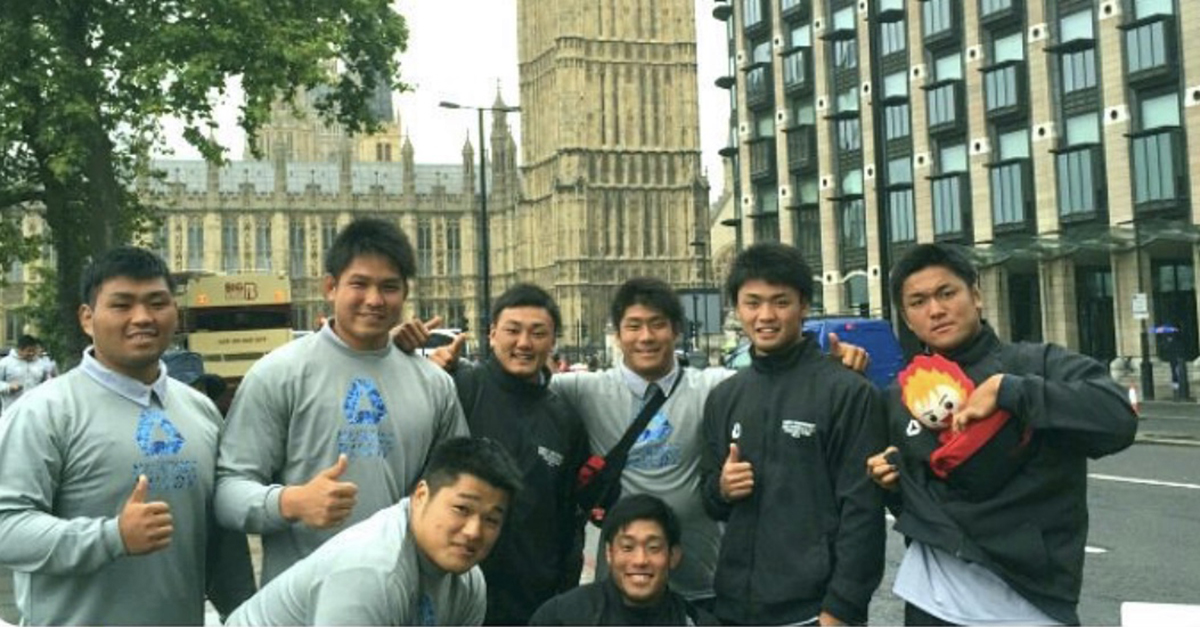
What is your motto?
One more push. This is a phrase I learned from a physical coach when I was in university. It sounds rather simple, but is actually much more difficult to carry out than you think. Over time, heaps of dust can form a mountain. Applying that idea to sport means that one more practice can make a big difference in the outcome.
This phrase means a lot to me, and even today I think of it when I’m feeling lost. It teaches me not to be satisfied and to keep striving for the goal. Everything ends when one feels satisfied. Whether one can see this and avoid it makes a big difference in the end. I never give up. I hate losing. I hate being runner-up. I want to always be number one.
How do you spend your free time?
Whenever I have free time, I try to stay home and relax. I love drinking beer and shochu, too! Of course, I pay attention to what I eat and consume as much protein as possible. I also try to increase my carbohydrate intake three days before a match. Weight training is very important as well for building upper-body strength, so I bench press up to 150kg. This strength is especially needed when I play against big players, such as those on teams from the UK. I have to tell you, I’m proud of my abdominal muscles!
How was your time in the UK?
I feel a deep affinity with the UK. I’ve been there three times so far. The first time, I went for an Under 20 expedition. We played against Wales. It was a great memory for me and was the first time I faced such a big difference in skill level when playing rugby. I still remember it well, even though I was just in high school at the time.
The second time, I went for a university expedition. Teikyo University and Durham University are sister institutions. I went there with my teammates and we had an amazing time! We also played against the University of Cambridge and exchanged uniforms after the match. I enjoyed it so much!
My third trip to the UK was in November 2018, for an official training camp with the Japan national team and a test match against England. No matter where I go in the UK, I find the towns very beautiful and the atmosphere traditional.
I mentioned earlier that I enjoy drinking beer, so, of course, I went to stylish pubs for drinks and tried traditional fish and chips while I was there.
Rugby is very popular in the UK—it’s a national sport—so people get excited and passionate during the game. And Twickenham Stadium is a sacred place. One day, I would like to play for a British club. I like speaking English very much and would like to improve. So, in the near future, when I finally join one of the British or European clubs, please remember my name from this interview!
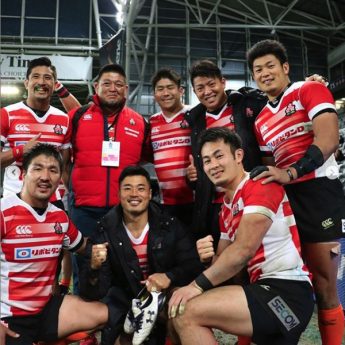
Which UK player do you most fear?
Since I wear number 10 for Japan, I cannot help but watch other number 10s wherever I go. Two of the most impactful I saw were Owen Farrell, England’s number 10, and Jonathan Sexton, Ireland’s number 10.
I especially like to watch Farrell’s way of using kicks. He has an extremely good game sense. I remember when we played against England in the 2018 test at Twickenham, as soon as Farrell joined the match, the flow of the game changed completely. He is definitely one of the top players in the world.
I also like to watch Sexton’s unique way of moving. He’s not a fancy player like Farrell, but his pass motion is extremely fast. He is very good at passing—especially at long-passing. Both players are blessed with size and strength. They play and fight physically—as they are big and fast—so we have to find a way of winning out against the power, of having our own way.
Any favourite spots in Tohoku?
I’ve been to Tohoku many, many times. Yamagata, Sendai and Iwate have all been sites of training camps. And last year I was there for charity activities to help rugby in kindergartens, junior high schools and high schools. Tohoku is one of the best places in Japan, rich in food and nature. I especially recommend visiting Sendai if you want good fish and beef tongue. In addition to food and nature, Tohoku is also rich in hospitality—the people there are very, very warm. Please visit and enjoy.
Any final message for our readers?
Rugby is great, and I hope you will take advantage of this amazing opportunity—the RWC 2019 in Japan—to learn more about the sport. Please come to see me running on the pitch and I will surprise you as a mystery player! We all need to connect and make the RWC 2019 a success for Japan. Come watch our matches and feel the bond as we share the experience of sport. And while you are there, yell out my name, Rikiya, and cheer me on!
